FIU prepares students for many careers in the health sphere beyond those in which our office advises.
A great resource for FIU students and alumni exploring other career options and pathways is the FIU Career and Talent Development (CTD) offices. CTD is a FIU student and alumni career resource. Their highly trained staff is dedicated to helping you make your career dreams a reality. CTD offer help with:
- Resume writing and critiques
- Professional development
- Career related events
- Internship and job search assistance
These services and other programming will help you move your career forward! Stay connected with FIU CTD!
Clinical Careers
Anesthesiologist Assistant
Certified Anesthesiologist Assistants (CAAs) are highly skilled health professionals who work under the direction of licensed anesthesiologists to implement anesthesia care plans
- Projected Jobs (2024-2034): 195,800
- Median Salary: $112,260
- Education Needed: Master’s Degree
- American Academy of Anesthesiologist Assistants
- ONET: Anesthesiologist Assistants

Nurse Practitioner
Nurse practitioners coordinate patient care and may provide primary and specialty healthcare.
- Projected Jobs (2024-2034): 448,800
- Median Salary: $129,210
- Education Needed: Master’s Degree
- U.S. Bureau of Labor Statistics: Nurse Practitioner
- FIU Nursing Advising

Registered Nurse
Registered nurses (RNs) provide and coordinate patient care and educate patients and the public about various health conditions.
- Projected Jobs (2024-2034): 3,557,100
- Median Salary: $93,600
- Education Needed: Registered nurses usually take one of three education paths: a bachelor’s degree in nursing, an associate’s degree in nursing, or a diploma from an approved nursing program. Registered nurses must be licensed.
- U.S. Bureau of Labor Statistics: Registered Nurse
- FIU Nursing Advising

Medical Assistant
Medical assistants work alongside physicians, mainly in outpatient or ambulatory care facilities, such as medical offices and clinics.
- Projected Jobs (2024-2034): 912,200
- Median Salary: $44,200
- Education Needed: Postsecondary nondegree
- U.S. Bureau of Labor Statistics: Medical Assistant

Radiologic and MRI Technician
Radiologic and MRI technologists , also known as radiologic technologists, diagnostic radiographers and medical radiation technologists are healthcare professionals who specialize in the imaging of human anatomy for the diagnosis and treatment of pathology.
- Projected Jobs (2024-2034): 237,800
- Median Salary: $88,180
- Education Needed: Associate’s degree
- U.S. Bureau of Labor Statistics: Radiology Tech
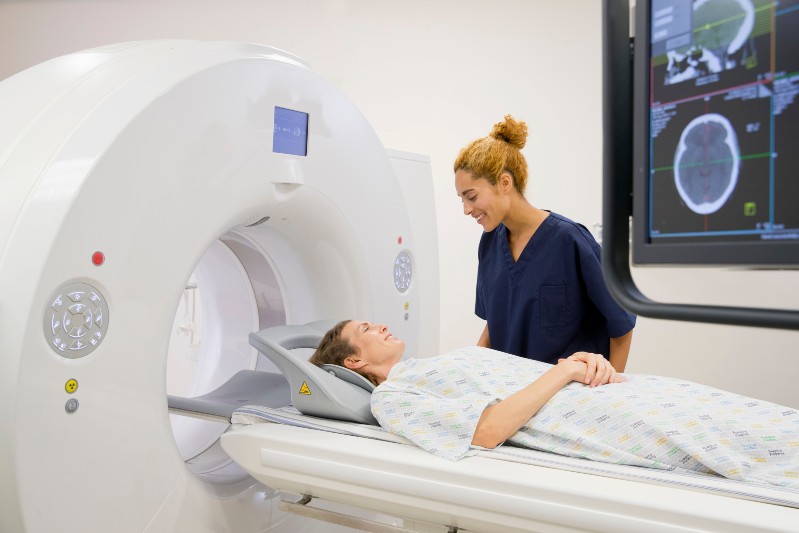
Respiratory Therapist
A respiratory therapist is a specialized healthcare practitioner trained in critical care and cardio-pulmonary medicine in order to work therapeutically with people suffering from acute critical conditions, cardiac and pulmonary disease.
- Projected Jobs (2024-2034): 156,400
- Median Salary: $80,450
- Education Needed: Associate’s degree
- U.S. Bureau of Labor Statistics: Respiratory Therapist

Surgical Technician
A surgical technologist, also called a scrub, scrub tech, surgical technician, or operating room technician, is an allied health professional working as part of the team delivering surgical care. Surgical technologists are members of the surgical team.
- Projected Jobs (2024-2034): 120,800
- Median Salary: $62,830
- Education Needed: Postsecondary nondegree
- U.S. Bureau of Labor Statistics: Surgical Tech

Phlebotomist
Phlebotomists are allied health professionals who draw blood from patients or blood donors for medical testing. They can also prepare and process blood tests.
- Projected Jobs (2024-2034): 147,500
- Median Salary: $43,660
- Education Needed: Postsecondary nondegree
- U.S. Bureau of Labor Statistics: Phlebotomist
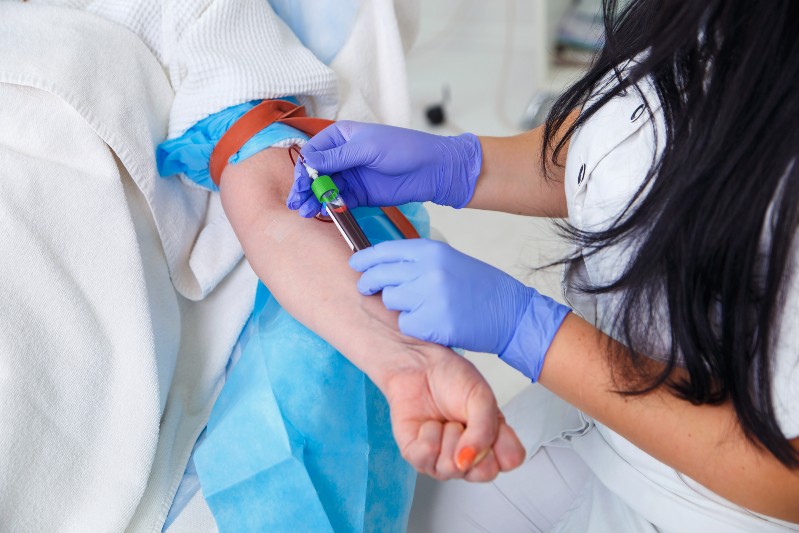
Physical Therapist
Physical therapists help injured or ill people improve movement and manage pain.
- Projected Jobs (2024-2034): 296,400
- Median Salary: $101,020
- Education Needed: Doctoral degree
- U.S. Bureau of Labor Statistics: Physical Therapist
- FIU Physical Therapy
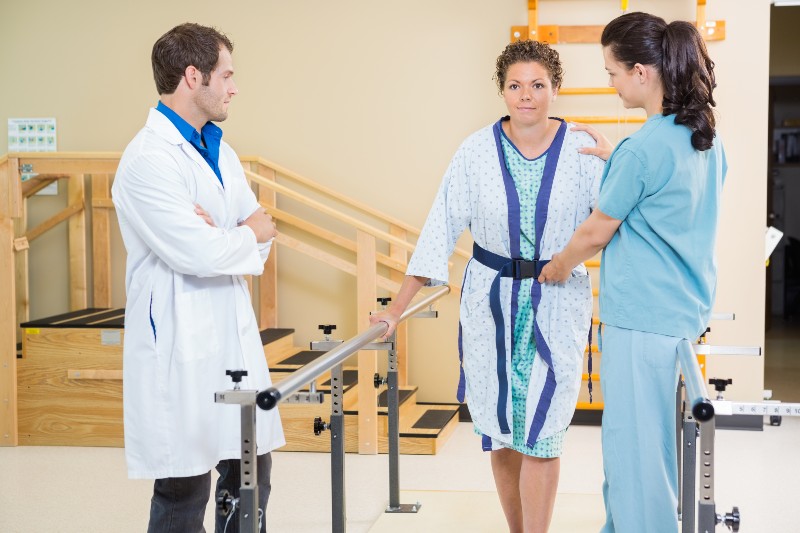
Occupational Therapist
Occupational therapists treat patients who have injuries, illnesses, or disabilities through the therapeutic use of everyday activities.
- Projected Jobs (2024-2034): 182,100
- Median Salary: $98,340
- Education Needed: Master’s degree
- U.S. Bureau of Labor Statistics: Occupational Therapist
- FIU Occupational Therapy
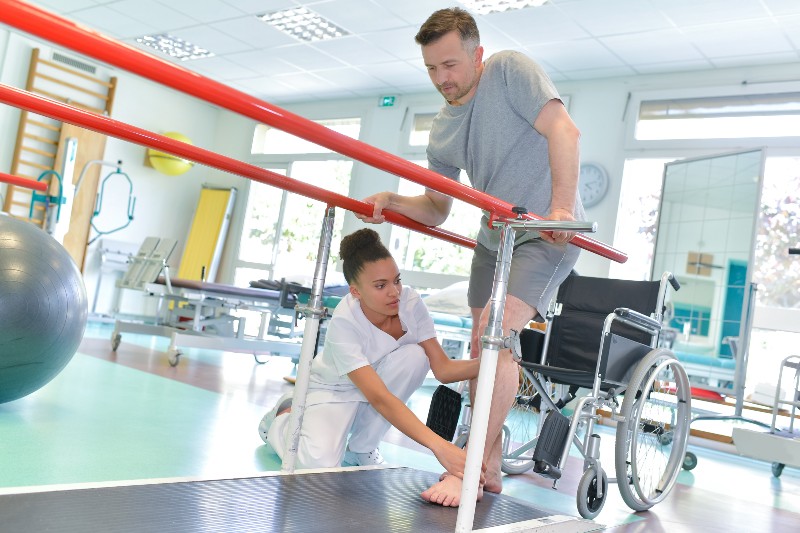
Recreational Therapist
Recreational therapists plan, direct, and coordinate recreation-based treatment programs for people with disabilities, injuries, or illnesses.
- Projected Jobs (2024-2034): 16,600
- Median Salary: $60,280
- Education Needed: Bachelor’s degree
- U.S. Bureau of Labor Statistics: Recreational Therapist
- FIU Recreational Therapy

Psychologist
Therapists, or psychotherapists, are licensed mental health professionals who specialize in helping clients develop better cognitive and emotional skills, reduce symptoms of mental illness, and cope with various life challenges to improve their lives.
- Projected Jobs (2024-2034): 216,000
- Median Salary: $117,580
- Education Needed: Doctoral degree
- U.S. Bureau of Labor Statistics: Psychologist
- FIU Psychology

Chiropractor
A chiropractor is a healthcare professional focused on the diagnosis and treatment of neuromuscular disorders, with an emphasis on treatment through manual adjustment and/or manipulation of the spine.
- Projected Jobs (2024-2034): 62,600
- Median Salary: $79,000
- Education Needed: Doctoral or Professional Degree
- U.S. Bureau of Labor Statistics: Chiropractor
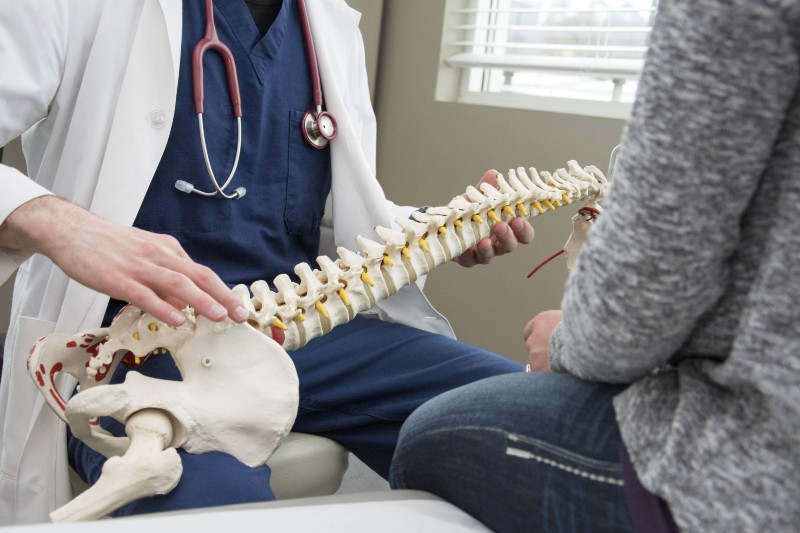
Nurse Midwife
Nurse Midwives encompasses a full range of primary health care services for women from adolescence beyond menopause. Midwives provide initial and ongoing comprehensive assessment, diagnosis and treatment.
- Projected Jobs (2024-2034): 9,500
- Median Salary: $128,790
- Education Needed: Graduate Nursing education
- U.S. Bureau of Labor Statistics: Midwifery

Paramedic/EMT
The basic difference between EMTs and paramedics lies in their level of education and the kind of procedures they are allowed to perform. While EMTs can administer CPR, glucose, and oxygen, paramedics can perform more complex procedures such as inserting IV lines, administering drugs, and applying pacemakers.
- Projected Jobs (2024-2034): 297,200
- Median Salary: $58,410
- Education Needed: Postsecondary nondegree
- U.S. Bureau of Labor Statistics: Paramedic/EMT
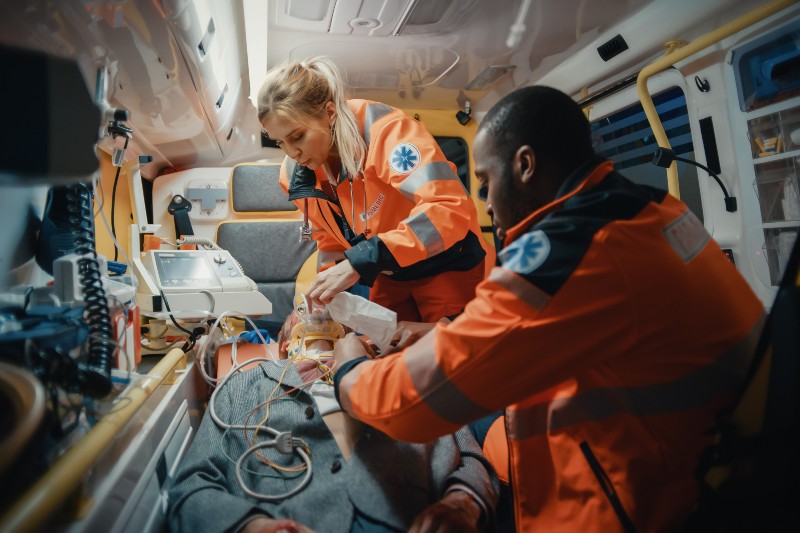
Dental Assistant
The duties of a dental assistant are among the most comprehensive and varied in the dental office. The dental assistant performs many tasks requiring both interpersonal and technical skills.
- Projected Jobs (2024-2034): 406,300
- Median Salary: $47,300
- Education Needed: Postsecondary nondegree
- U.S. Bureau of Labor Statistics: Dental Assistant

Dental Hygienist
In performing the dental hygiene process of care, the dental hygienist assesses the patient’s oral tissues and overall health determining the presence or absence of disease, other abnormalities and disease risks; develops a dental hygiene diagnosis based on clinical findings; formulates evidence-based, patient-centered treatment care plans; performs the clinical procedures outlined in the treatment care plan; educates patients regarding oral hygiene and preventive oral care; and evaluates the outcomes of educational strategies and clinical procedures provided.
- Projected Jobs (2024-2034): 237,200
- Median Salary: $94,260
- Education Needed: Associate’s Degree
- U.S. Bureau of Labor Statistics: Dental Hygienists
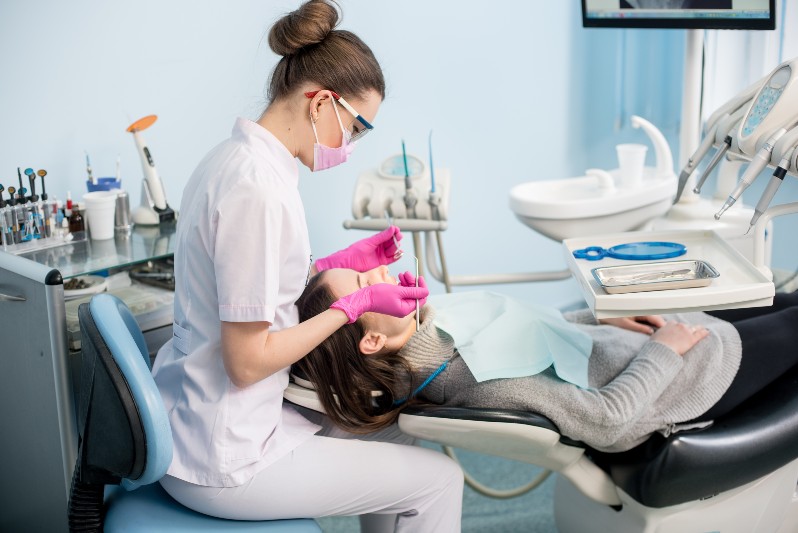
Dietician or Nutritionist
Clinical dietitians provide medical nutrition therapy for patients in institutions such as hospitals and nursing care facilities. They assess patients’ nutritional needs, develop and implement nutrition programs and evaluate and report the results. They confer with doctors and other health care professionals in order to coordinate medical and dietary needs. Some clinical dietitians specialize in the management of overweight and critically ill patients, such as those with renal (kidney) disease and diabetes. In addition, clinical dietitians in nursing care facilities, small hospitals, or correctional facilities may manage the food service department.
As opposed to dietitians, who are qualified to diagnose eating disorders and design diets to treat specific medical conditions, nutritionists deal with general nutritional aims and behaviors. Nutritionists are often employed in schools, hospitals, cafeterias, long-term care facilities, and athletic organizations.
- Projected Jobs (2024-2034): 95,900
- Median Salary: $73,850
- Education Needed: Master’s Degree
- U.S. Bureau of Labor Statistics: Dietitians & Nutritionists
- FIU Dietetics & Nutrition

Home Health Aide
Home health aides and personal care aides help people with disabilities, chronic illness, or cognitive impairment by assisting in their daily living activities. They often help older adults who need assistance. Home health aides may be able to give a client medication or check the client’s vital signs under the direction of a nurse or other healthcare practitioner.
- Projected Jobs (2024-2034): 739,800
- Median Salary: $34,900
- Education Needed: High school diploma or equivalent
- U.S. Bureau of Labor Statistics: Home Health Aide

Optician
Opticians help fit eyeglasses and contact lenses, following prescriptions from ophthalmologists and optometrists. They also help customers decide which eyeglass frames or contact lenses to buy.
- Projected Jobs (2024-2034): 82,200
- Median Salary: $46,560
- Education Needed: High school degree or equivalent and receive on-the-job training Some states require opticians to be licensed, which may include completing an associate’s degree or a certificate in ophthalmic dispensing or a related field.
- U.S. Bureau of Labor Statistics: Optician

Veterinary Technician
Veterinary technologists and technicians, supervised by licensed veterinarians, do medical tests that help diagnose animals’ injuries and illnesses.
- Projected Jobs (2024-2034): 146,400
- Median Salary: $45,980
- Education Needed: Associate’s Degree
- U.S. Bureau of Labor Statistics: Veterinary Technician

Medical and Clinical Laboratory Technologist
Clinical Laboratory Scientists, also known as Medical Laboratory Scientists or Medical Technologists, perform complex laboratory tests that are essential for diagnosing, treating, and preventing disease. They analyze blood, tissue, and other body fluids to detect infections, monitor organ function, identify blood disorders, and ensure the accuracy of test results used by physicians to make medical decisions.
- Projected Jobs (2024-2034): 357,200
- Median Salary: $461,890
- Education Needed: Bachelors’s Degree, plus completion of an accredited clinical laboratory training program.
- U.S. Bureau of Labor Statistics: Clinical Laboratory Technologists and Technicians

Non-Clinical Careers
Medical Records Specialist
Medical records specialists have a variety of data entry and recordkeeping tasks. They may gather patients’ medical histories, symptoms, test results, treatments, and other health information and enter the details into electronic health records (EHR) systems. Some workers categorize medical information for purposes such as insurance reimbursement and providing data to clinicians.
- Projected Jobs (2024-2034): 3208,600
- Median Salary: $50,250
- Education Needed: Postsecondary Non-degree
- U.S. Bureau of Labor Statistics: Medical Records Specialists

Social Worker
Social workers help people solve and cope with problems in their everyday lives. Clinical social workers also diagnose and treat mental, behavioral, and emotional issues.
- Projected Jobs (2024-2034): 855,600
- Median Salary: $61,330
- Education Needed: Bachelor's or Master's degree in Social Work. Some States may require a license.
- U.S. Bureau of Labor Statistics: Medical Social Worker
- FIU School of Social Work

Healthcare Administration Director
Medical and health services managers, also called healthcare executives or healthcare administrators, plan, direct, and coordinate medical and health services. They may manage an entire facility, a specific clinical area or department, or a medical practice for a group of physicians. Medical and health services managers must adapt to changes in healthcare laws, regulations, and technology.
- Projected Jobs (2024-2034): 759,100
- Median Salary: $117,960
- Education Needed: Bachelor’s Degree
- U.S. Bureau of Labor Statistics: Healthcare Administration
- FIU Health Service Administration

Patient Services Representative
Customer service representatives work with customers to resolve complaints, process orders, and provide information about an organization’s products and services.
- Projected Jobs (2024-2034): 2,660,300
- Median Salary: $42,870
- Education Needed: High School Diploma or equivalent and receive on-the-job training.
- U.S. Bureau of Labor Statistics: Patient Services Representatives

Contact Us
Pre-Health Advising
Modesto A. Maidique Campus
11200 SW 8th Street, DM 337
Miami, FL 33199
305-348-0515
preprofc@fiu.edu